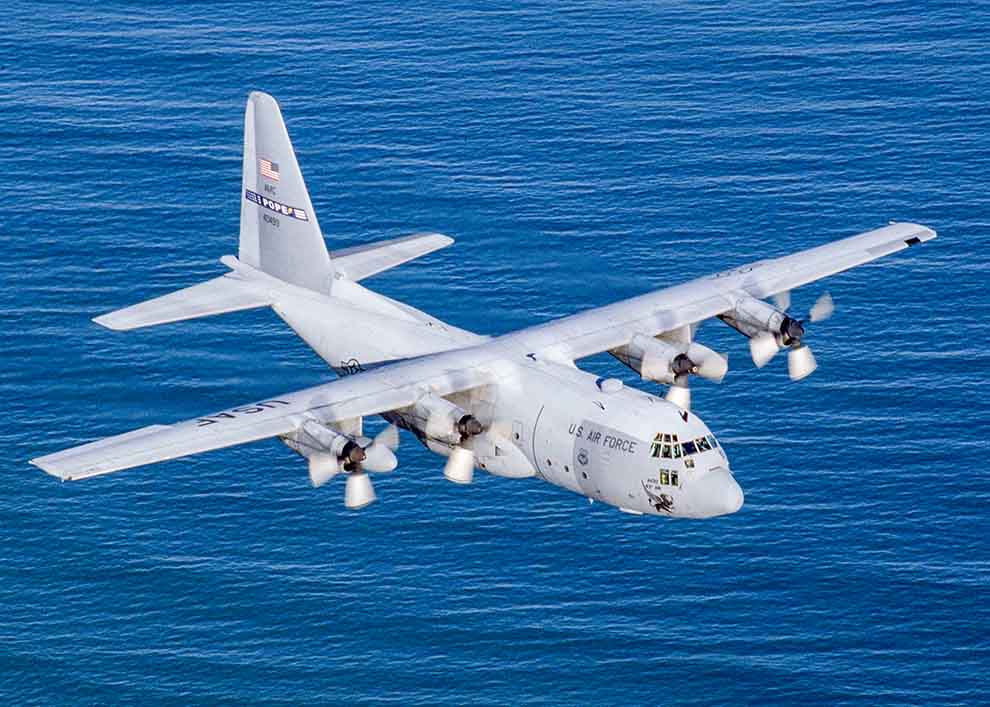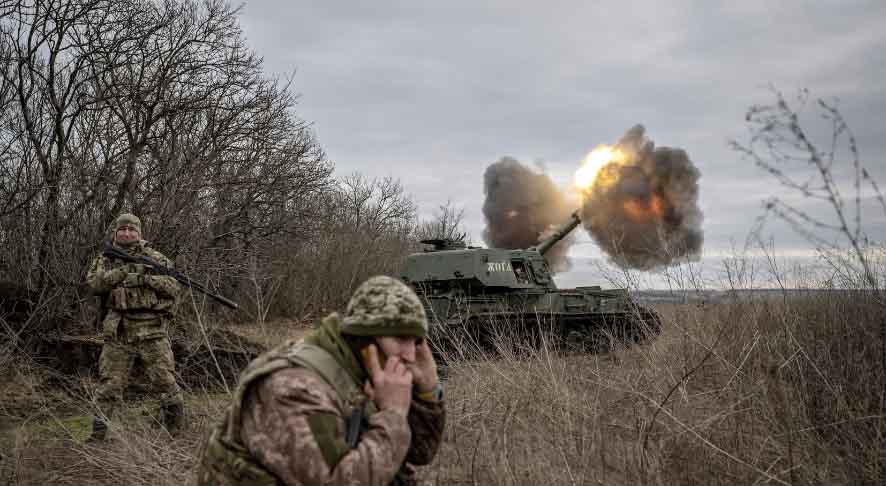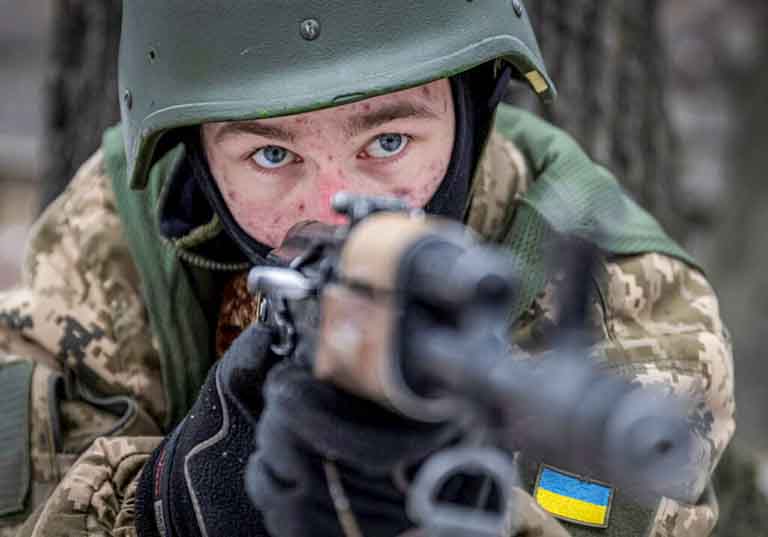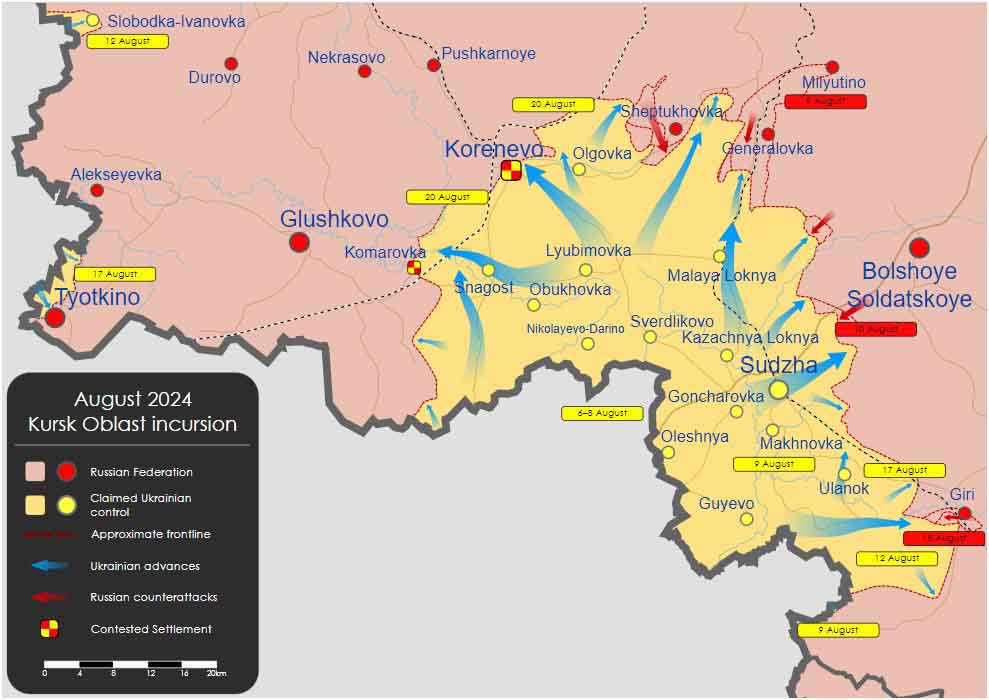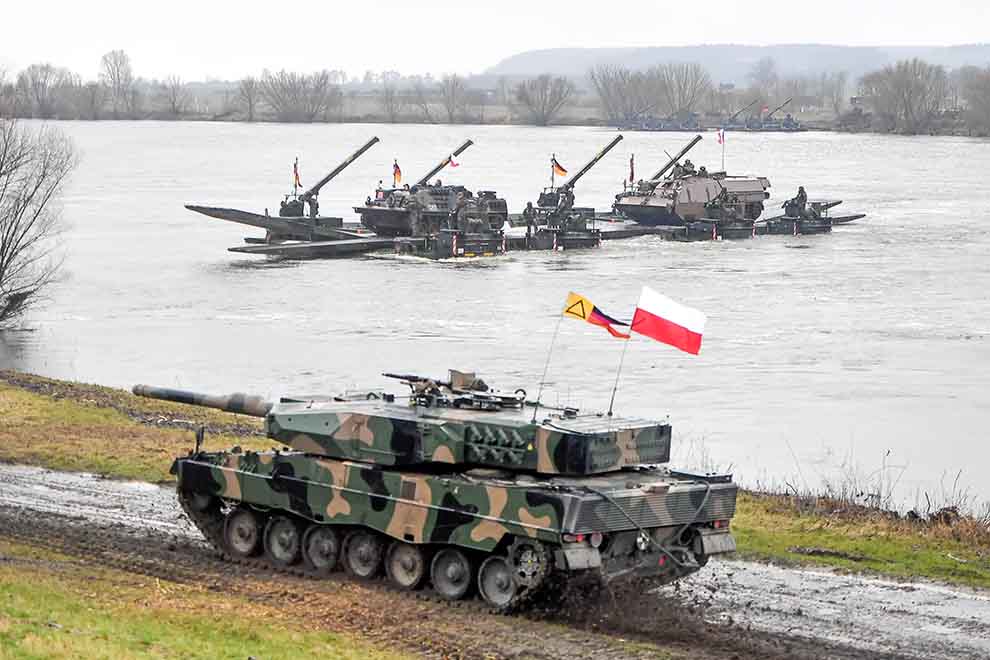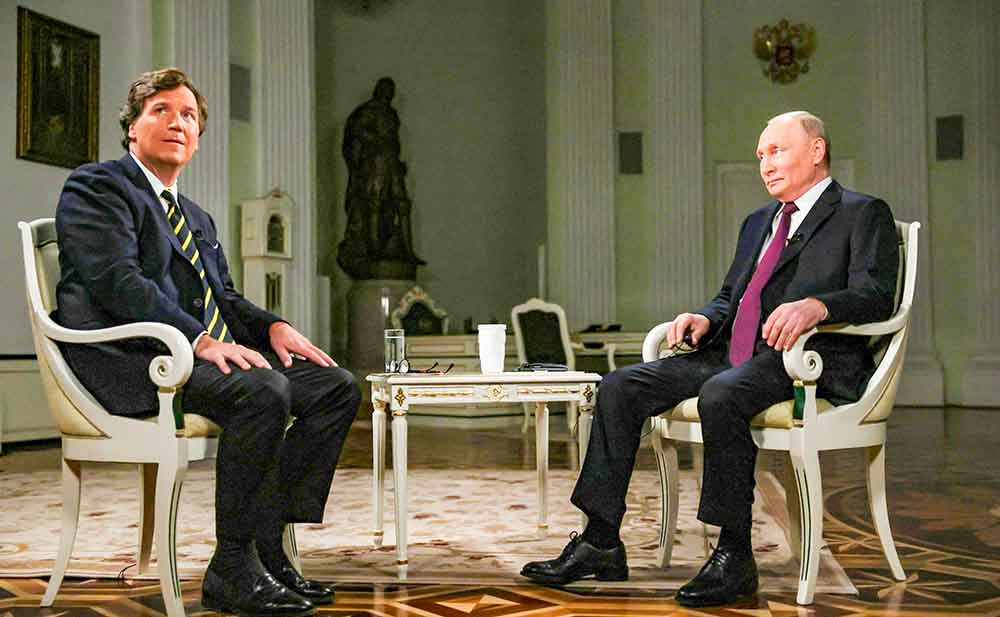As the Ukrainian-Russian conflict continues, Western nations grapple with the high costs and strategic implications of continued support for Ukraine. “War fatigue” is evident.
Initially, the West responded strongly, seeing the invasion as a threat to both Ukraine and broader stability in Europe. But as war fatigue grows, the focus is shifting from escalation to finding realistic paths to peace.
Recognizing the Alliance and What's at Stake
President Joe Biden’s recent acceptance of the Grand Cross of the Order of Merit from Germany underscores his personal commitment to the German-American alliance. The distinction, presented by German President Frank-Walter Steinmeier, was a tribute to Biden’s role in rekindling European faith in U.S. solidarity, especially in the face of the outbreak of global conflicts. But Steinmeier’s words also reminded us of the stakes: Putin’s aggression is not just an attack on Ukraine; it threatens peace throughout Europe.
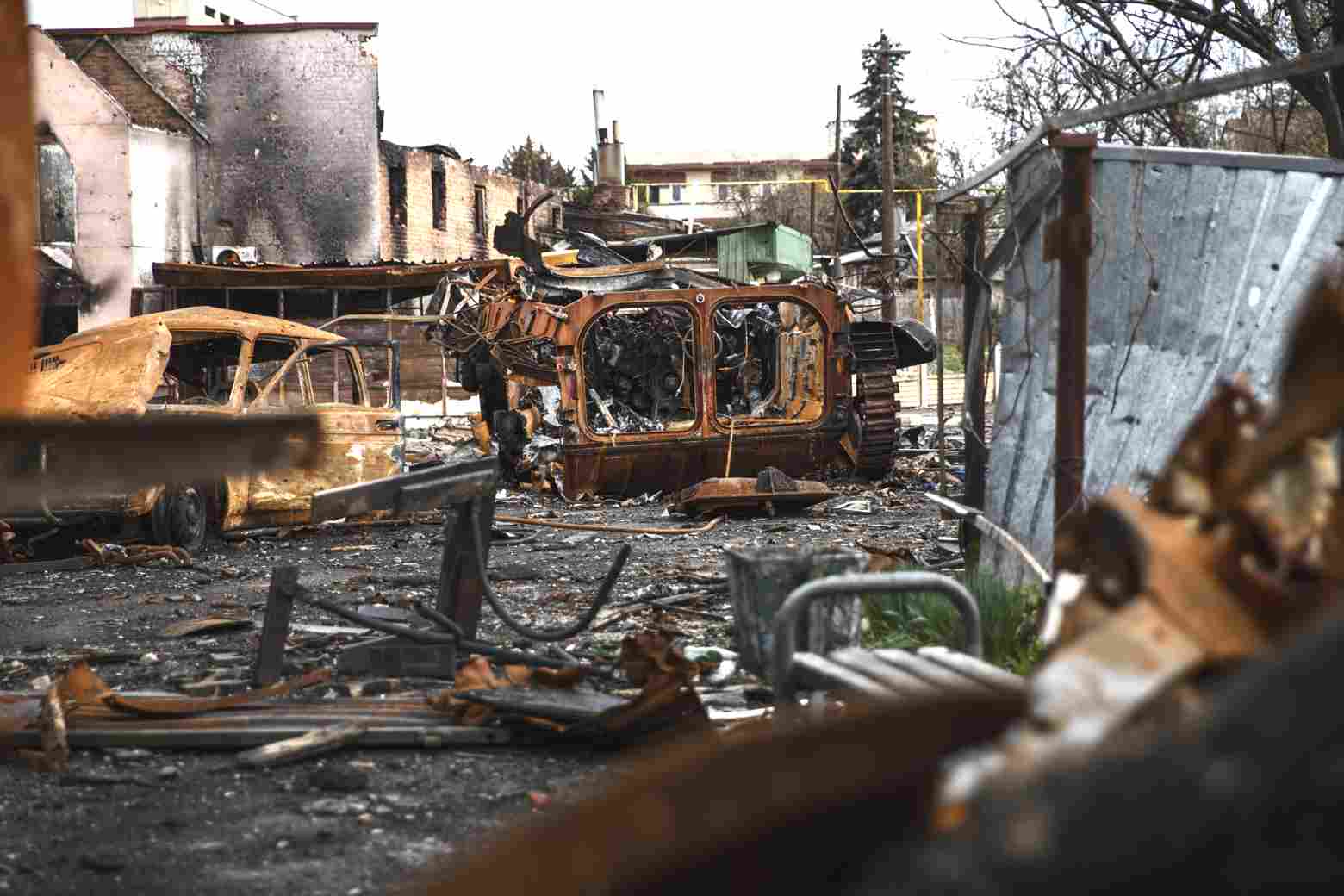
Photo: Freepik
Despite harsh sanctions and diplomatic isolation, Russia has stepped up its presence in Ukraine. This reality poses new challenges for Western leaders, who weigh the ongoing support Ukraine needs against the risks of a prolonged conflict.
Western Strategies and Russian Alliances
Under Biden in the U.S., German Chancellor Olaf Scholz, and other NATO allies, the West initially provided strong support for Ukraine, preventing an early takeover. But as China, North Korea, and Iran ally with Moscow, the conflict has morphed into a larger geopolitical confrontation.
The sanctions have not yet sparked the – rather naively expected – internal political opposition in Russia, which has left Putin in a relatively strong position and his economy better adapted to the protracted conflict.
The sanctions imposed by Western countries on Russia were intended to weaken the aggressor's economy, but their effects are not limited to Russia. Although the Russian ruble has lost value and the country is struggling with increasing difficulties in international trade, the Russian government has implemented economic policies that have allowed for a relative stabilization of the domestic situation. At the same time, the sanctions have also hit Western economies, especially European countries that were dependent on Russian supplies of raw materials.
Russian raw materials
The conflict in Ukraine has had a significant impact on global energy and commodity markets. As a result of sanctions imposed on Russia, Western European countries were forced to look for alternative gas suppliers, which led to an increase in prices on global markets. At the same time, Russia increased its energy supplies to China and India, trying to compensate for losses associated with the European embargo. The turmoil in the energy market has far-reaching effects, affecting product prices, inflation and the economic stability of many countries. Energy prices have increased, which has affected inflation and the overall cost of living of citizens. All this raises questions about the long-term effectiveness and cost of sanctions for both sides of the conflict.
Ukraine, currently mired in a war of attrition, faces relentless attacks on its infrastructure as Western leaders contemplate peace terms that would ideally protect Ukrainian sovereignty without compromising the integrity of NATO.
The conflict in Ukraine has had a huge humanitarian cost. Hundreds of thousands of Ukrainians have lost their lives and millions have been forced to flee their homes, becoming refugees in Poland, Germany and other European countries. The humanitarian crisis caused by the war is affecting both Ukraine and its neighbours, as well as international organisations that are faced with the challenges of caring for refugees and providing medical and food aid. The scale of civilian suffering underlines the need to end the conflict as soon as possible.

Photo: Freepik
Speculation from Western politicians, including our own Minister Sikorski, is about potential compromises, including giving up some territories to Russia in exchange for closer integration of Ukraine with NATO and the EU. However, this depends on Putin's willingness to negotiate - which is, at best, an uncertain prospect.
Putin's Growing Demands
Taking advantage of Western hesitation, Putin is seeking significant concessions, including significant territory and influence over Ukrainian politics. For him, the conflict is a chance to weaken NATO and destabilize the EU. The West’s indecision gives him the upper hand, leaving Biden and European leaders at a crossroads: continue unwavering support or risk a shift that could reshape the European power dynamic. Such, unfortunately, are the consequences of earlier indecision, when this aggression could have been more effectively contained early on.
The U.S.-German alliance, seen by the Washington administration as crucial to transatlantic unity, is facing its most important test since the Cold War. Its resilience will be crucial not only for Ukraine but also for the stability of Europe and the broader international order.
Arguments for continued support
Supporters of continued aid argue that defending Ukraine is essential to global security, neutralizing some of Russia's military threat to NATO's eastern flank. A Ukrainian victory would strengthen Western influence and deter similar aggression from adversaries such as China and North Korea.
Economic benefits also support continued support, as U.S. defense spending in Ukraine bolsters the country’s industry while boosting Western credibility.
In addition to arms deliveries and military aid, the West has been involved in efforts to rebuild Ukraine’s devastated infrastructure, which has been severely damaged by Russian attacks. Financial and logistical support is aimed at helping rebuild roads, hospitals, schools, and key energy resources, which are essential to keeping the country economically and socially stable. These projects are being implemented jointly by international institutions such as the World Bank and the European Union, and their continuation will be crucial in the event of a prolonged conflict.
Delays in delivering essential equipment, and restrictions on its use, could signal hesitation, emboldening Russia and prolonging the conflict. Some analysts warn that the West’s caution not to escalate may inadvertently allow Russia to regroup, increasing Ukraine’s suffering and, paradoxically, deepening global instability.
In response to the Russian threat, NATO countries have begun to increase their defense spending and expand military infrastructure on the alliance’s eastern flank. This is particularly true of Poland, Romania, and the Baltic states, which are taking steps to modernize their armies and prepare for potential crises. NATO has also increased the size of its rapid reaction forces in Eastern Europe and is considering permanent military bases in the region, with the aim of deterring Russia from a potential escalation.
To be continued...
In the second part of this article to be published soon, we write about how Poland plays a key role in providing humanitarian and military aid, becoming a strategic partner of NATO; about the high costs of US and European support for Ukraine, especially in the arms sector; and all this in order to prevent further expansion of Russia and its allies, such as China and Iran.







